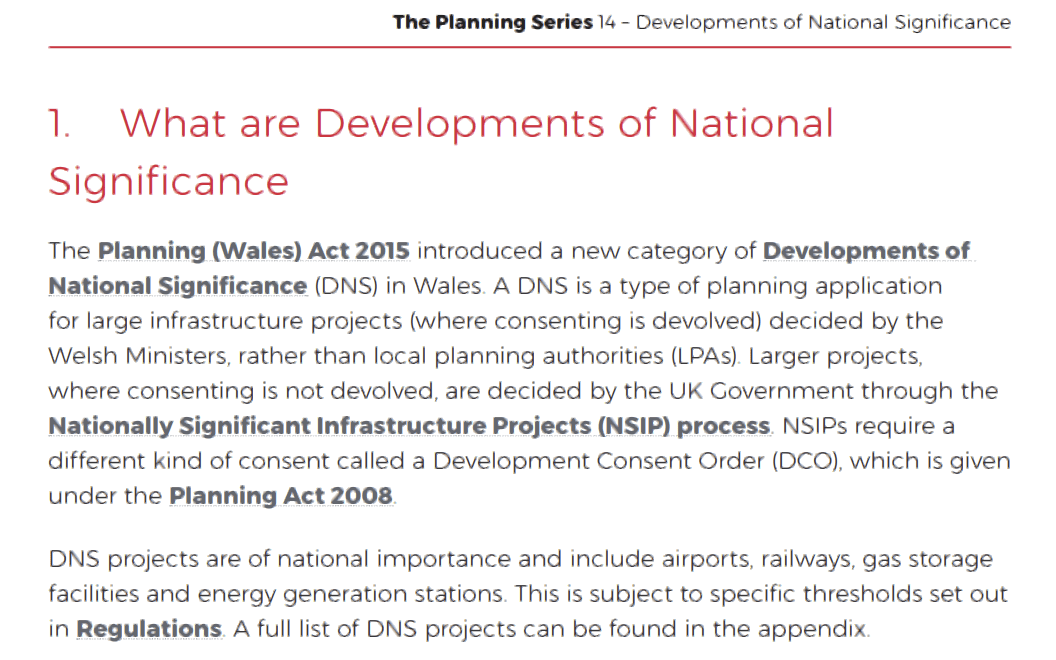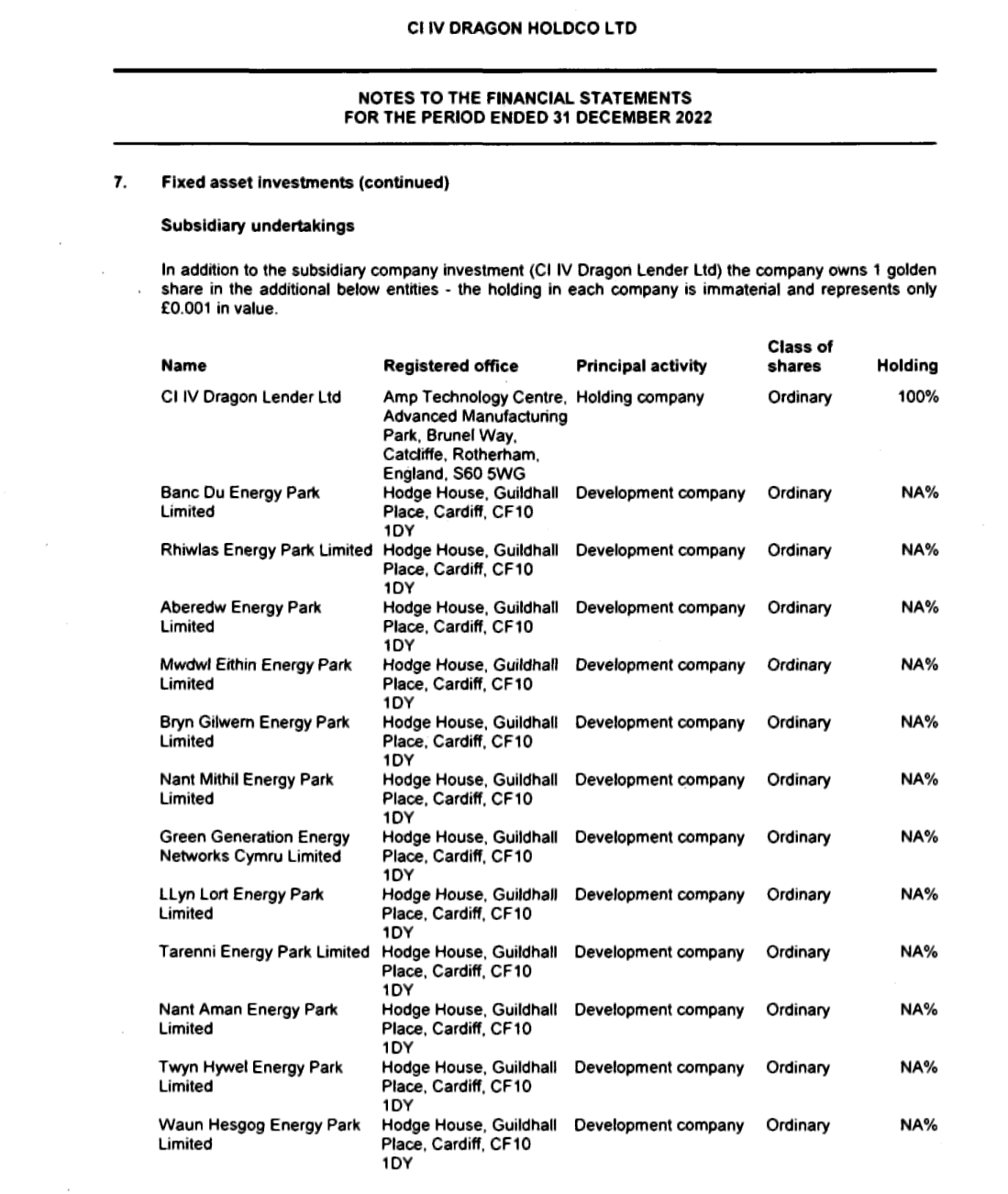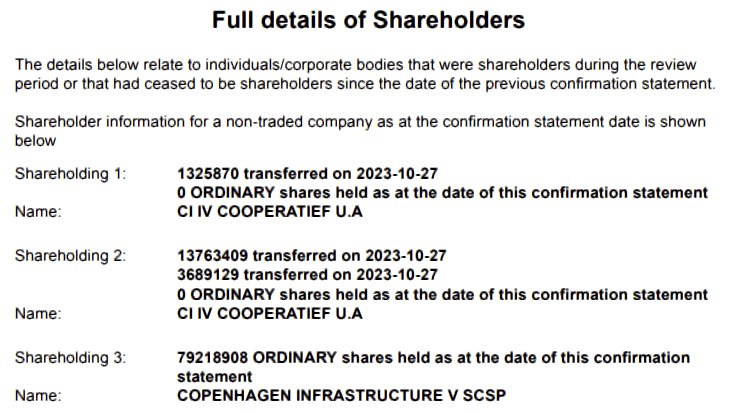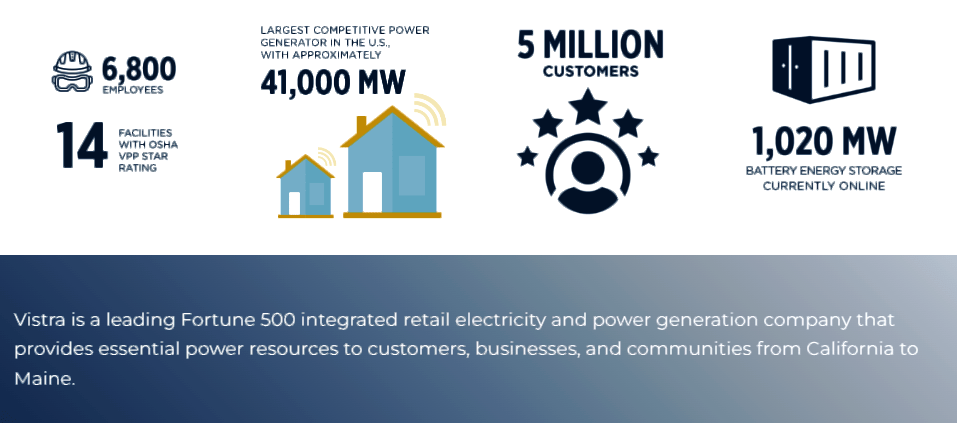![]() For a second week running, I’m focusing on Bute Energy. This time, looking at its links with the Labour party, and how, through that and by other means, Bute encourages corruption and spreads discord.
For a second week running, I’m focusing on Bute Energy. This time, looking at its links with the Labour party, and how, through that and by other means, Bute encourages corruption and spreads discord.
This will also serve to bring those who haven’t been following the Bute saga up to date.
◊
THE FLOODGATES OPEN!
I first became aware of Bute’s links to Labour when I was told that someone was visiting people close to a planned wind farm. This was (the now abandoned) Moelfre site inland of Colwyn Bay, a real outlier from Bute’s other projects.
This Bute representative was David James Taylor, Labour insider who’d been Spad to a number of high-profile figures; UK government minister Peter Hain and Wales first ministers Rhodri Morgan and Carwyn Jones.
In 2016 Taylor stood to become the North Wales Police and Crime Commissioner. After losing maybe he considered his career options. Or perhaps he was approached, for Labour was already helping wind farm developers.
We saw this when Anna McMorrin lobbied Powys councillors on behalf of Hendy wind farm in April 2017, just a month before she was elected Labour MP for Cardiff North.
Taylor formed three companies in October 2018: Moblake Wind Ventures Ltd (which became Moblake Ltd 11.11.2020); Moblake Energy Trading Ltd (folded 2020); and Moblake Associates Ltd (now being struck-off).
The timing is intriguing, because Taylor’s companies were formed a week before his friend and colleague, Lesley Griffiths, set the precedent of over-ruling a planning inspector to give Hendy windfarm planning consent. She did so using the relatively new Developments of National Significance (DNS) legislation.
DNS made it clear that Wales was free range for wind turbines; free of interference from locals, their council representatives, or even planning inspectors.
Taylor was rewarded by Bute with shares in Windward Enterprises Ltd (now Windward Energy Ltd), both in his own name and that of Moblake Associates Ltd. He was also a (non-designated) member of Grayling Capital LLP.
Money magically appeared in Moblake Ltd, which Taylor then paid to himself in ‘loans’ totalling over £600,000 that did not need to be repaid.

There was an attempt to liquidate this company a couple of years ago, but the liquidator was removed last August. Since when there’s been no further news.
Taylor was useful to Bute because of his closeness to Lesley Griffiths, and his insider knowledge of the Labour party machine.
Which is why it’s suggested that Taylor’s personal payment came in shares and other ways; and that most if not all of the £600,000+ was really a donation from Bute to the Labour party.
◊
‘YOU SAY VISTRA, AND I SAY, ER . . . VISTRA‘?
Someone has contacted me arguing there are two companies called Vistra, and in last week’s post I conflated them. One is a big Texas energy company, the other is a provider of secretarial services.
To explain . . .
Copenhagen Infrastructure Partners (CIP) is funding Bute through CI IV Dragon Lender Ltd, owned by CI IV Dragon Holdco Ltd. All holdco shares owned by Copenhagen Infrastructure V SCSp, which has its address at 16 Rue Eugene Ruppert, L2453, Luxembourg. At the same address is ‘Vistra’.
Now I took this to mean the Texas energy firm, but my contact insists it’s the other one. He’s probably right. But in my defence:
Vistra Company Secretaries Ltd of Bristol (which you’ll read about in a minute) was, until April 2019, Jordan Company Secretaries Ltd. The Vistra name was adopted because it was taken over and joined many companies under the Vistra banner.
Vistra is now owned by Sweden’s EQT, an equity outfit big in green energy.
So there are two Vistra companies. But with both involved in ‘renewable energy’ projects, often the same projects, confusion was almost inevitable.
Especially when we see BlackRock, State Street and Vanguard behind both.
◊
THE GANG OF FOUR
Soon after landing in Wales, and perhaps in an attempt to establish Welsh credentials, Bute set up a Welsh Advisory Board. You can see the members in the image below.

Left to right: Derek Vaughan, redundant MEP; Dr Debra Williams, businesswoman and academic; John ‘Cwmbetws’ Davies, man of many hats and big shot in the Royal Welsh Agricultural Society; John Uden, partner of Jenny Rathbone MS.
◊
THE NEATH PORT TALBOT-BRUSSELS-COPENHAGEN CONNECTION
Derek Vaughan was leader of Neath Port Talbot (NPT) council and would certainly know Stephen Kinnock, the Labour MP for Aberavon, the Port Talbot seat.
Vaughan was an MEP from 2009 to 2019, preceded by the late Glenys Kinnock. The wife of former Labour leader, Neil Kinnock, and mother to Stephen.
Stephen Kinnock MP is married to Helle Thorning-Schmidt, former Danish PM. She serves as a director of Danish wind turbine producer, Vestas, reputed to be the biggest in the world.

In 2020 Vestas took a 25% stake in Copenhagen Infrastructure Partners. As you’ve just read, CIP is the conduit for funding the Bute projects.
Derek Vaughan’s political background and contacts explain him being chosen as the chairman of Bute’s Welsh Advisory Board. He was a ‘good fit’.
◊
THE ACADEMIC BUSINESSWOMAN
I can’t tell you much about Dr Debra Williams other than the fact that she was managing director of Confused.com. Now she’s taken a gig at Lampeter, which some might view as a step backwards.

That said, since Jane Davidson landed there after ‘leaving’ Corruption Bay, Lampeter has tried to re-invent itself as a centre for alternative living. And why not, there are enough ‘alternatives’ in the shacks, tepees, and OPDs thereabouts.
Even so, I keep thinking there’s something I’m missing about Dr Williams, unless she was viewed by Bute as their entry to what passes for the Welsh business community.
◊
GALILEO AND THE FAVOURED SON
A number of sources have told me that Bute has assiduously courted the Royal Welsh Agricultural Society (RWAS). Which makes sense, for the RWAS gives access to many of the landowners on whose property Bute would like to erect turbines and pylons.
And this explains Bute’s recruitment of John Davies, who from 2012 was RWAS chairman. As I read through his other appointments I recalled Harri Webb’s reference to, “the public men on the boards and panels“.
Put it all together and it made him very attractive to Bute.
I have been told that John Davies was instrumental in seeing Aled Rhys Jones appointed CEO of the RWAS. Nothing wrong, I suppose, with a man of John Davies’s standing promoting a protégé. But there may be more to it.
As you might have read in the link, Aled comes from, “the family’s hill farm near Cwrt-y-Cadno in North Carmarthenshire“. To be exact, Tyllwyd, which I’m told the family still owns, but rents out.

The thing about this area is that it’s being targeted by other wind farm companies in addition to Bute. As I wrote last November, in ‘A Change Of Tack?‘
One of those companies is Galileo Green Energy UK, eyeing a site at Bryn Cadwgan. With another Welsh site planned for Mynydd Ty-talwyn.
The parent company, Galileo Green Energy, is headquartered in Zurich.
Curiously, when based in Bristol – at the Vistra address – Galileo was known as GGE Machynlleth Ltd. Now it’s using a Cardiff office and the name has changed to Galileo Empower Wales Ltd.

A quick shufty at the directors will tell you how Welsh it really is.
Anyway, I hear that Aled Rhys Jones, CEO of the RWAS, stands to gain financially from the Bryn Cadwgan wind farm. A map I’ve been sent shows the outline of the wind farm in red, with the Tyllwyd land edged in green.
You’ll see four turbines planned on Tyllwyd land. With access to the others perhaps over Tyllwyd land. All perfectly legal, but it don’t look good.

The forested land is owned by Natural Resources Wales, which will mean mature trees felled to accommodate wind turbines, access roads, cable trenches, etc.
That’s protecting the environment, that is.
Correction: Just received some clarification: ‘I am informed: There are two machines on Tilhill managed land, but nearly all the others are on ——— — ——– (Ilchester Estate) plantation, with a few on Tyllwyd and other individual land owners.’
◊
THE MAN FROM GOD KNOWS WHERE
The fourth member of the quartet is John Uden, whose only qualification is being the partner of Senedd Member, Jenny Rathbone, who sits on the Senedd’s Climate Change, Environment and Rural Affairs Committee.
And so to understand why Bute recruited Uden we need to focus on Rathbone.
Rathbone was born in Liverpool and is a member of the Rathbone dynasty, once very influential in that city. The influence continues through Rathbones Wealth & Investment Management.
Jenny Rathbone and other family members are looked after from the investments made. This presumably accounts for the shares in her Register of interest.
An earlier declaration of Rathbone’s says that Uden was getting payment from Bute, but that’s absent from the latest Register. So is he working for free, or is payment being made in some other way?

Interestingly, he set up John Uden Consulting Ltd in March 2020. A company that (apparently) has never turned a penny. Was he planning to go down the same route as Taylor, but backed off after I first mentioned Taylor and Moblake (August 2020) in Corruption in the wind 2, Labour snouts in the trough?
I shall conclude this section by dazzling you with yet another example of propinquity.
A fascinating connection revealed itself shortly after I put out the previous piece. Copenhagen Offshore Partners A/S has an office at 10 George Street, Edinburgh. In the same building we find Rathbone Investment Management (£60bn assets).

It’s probably just another of the coincidences that plague the Bute saga.
◊
SLICING THE PENSION POT TURKEY
As an example of how Wales is ripped off by the pushers and pimps of the ‘renewable energy’ industry, the Wales Pension Partnership investment takes some beating.
The Welsh local government pension pot (WPP) is investing at least £68m in Bute Energy. Reading the article on the WPP website you might think this money is going directly from the pension fund to Bute. For no intermediaries are mentioned.
Yet the WPP was ‘advised’ by law firm Burges Salmon of Bristol. Then this article in renews.biz gives more names: ‘WPP has been advised by independent clean energy asset manager Capital Dynamics and by the law firms TLT and Burges Salmon’.
That is, Capital Dynamics of London, Birmingham and various cities around the world. Top man is Thomas Kubr, who can be found at the Zug office, south of Zurich.
The registration with Companies House tells that Capital Dynamics has 49 outstanding charges, and is heavily indebted to if not controlled by State Street.
TLT is another Bristol law firm. (It’s s shame we don’t have lawyers in Wales.)
◊
QUI BONO?
After all is said and done, do we really know who owns the wind farms in Wales? For as I suggested in last week’s piece, Bute Energy, run by Oliver James Millican, is an offshoot of the property and investment company Parabola, run by his father, Peter John Millican.
Also, in last week’s piece (and elsewhere in recent years) I mentioned Njord Energy Ltd and Steven John Radford, the man behind Hendy wind farm, where we earlier met lobbyist – now Labour MP – Anna McMorrin.
Another of Radford’s projects, not far away, was Bryn Blaen. The ownership history is instructive. It starts with Radford leaving Bryn Blaen Wind Farm Ltd in February 2020.
Bryn Blaen is now said to be owned by Elm Wind Holdings Ltd. Which leads back to Elm Trading Ltd, where the latest accounts say:

But does this apparently leaderless outfit have any connection with a foreign entity of the same name registered on the Isle of Man?

Or is this just another coincidence?
If so, then maybe we should focus on the labyrinth of companies linked with Elm Trading at the London address. Companies like Time Nominees Ltd, which holds all the Elm Trading shares and is controlled by Alpha Real Property Investment Advisers LLP. Which is owned by Philip Sidney Gower of Guernsey.
Who’s Gower? Well, he’s described here as a ‘serial entrepreneur’.
The point I’m making is that when it comes time to dismantle, recycle, or bury, the clapped-out wind turbines on Bryn Siencyn, and restore the site to its earlier condition, the ‘Welsh Government’, the local council, and Natural Resources Wales, will be met with, ‘Nothing to do with us, squire, we sold it to a company on an island somewhere‘.
And we’ll have to pay for dozens of Bryn Siencyns.
◊
CONCLUSION
But the immediate danger remains the corruption engendered by wind farm ‘developers’.
Through the influence they wield inside ‘Welsh’ Labour, where corruption is endemic. As we’ve been so recently reminded by the new first minister. Now the poison has spread to Plaid Cymru, exposed to the world when Carmen Smith, Bute lobbyist, was made a peer.
Beyond politics these ‘developers’ cause resentment within the farming industry by making some farmers offers they can’t refuse – a position into which many have been manoeuvred by the ‘Welsh Government’s war on livestock farming.
And finally, there’s worry and division inflicted upon communities across Wales.
∼
It really pisses me off to see the country I love reduced to third world level; where a few chiefs can be bribed so the rest of us can be exploited, our country wrecked.
We’re in this mess because leftists believe they’re fighting the evils of capitalism by buying into the climate scam dreamed up to further the ambitions of the wealthiest individuals and the biggest corporations on Earth.
♦ end ♦
© Royston Jones 2024









